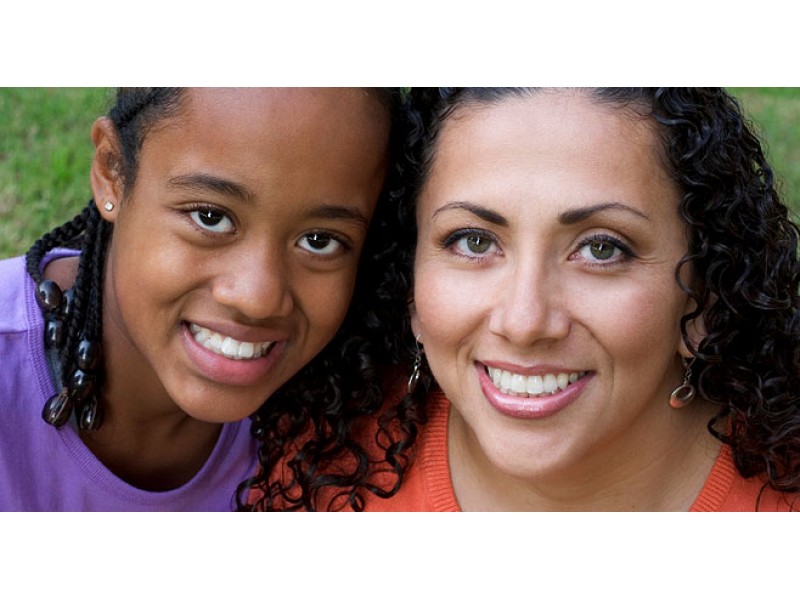Saturday, October 31, 2015
Thursday, October 29, 2015
Friday, October 23, 2015
Thursday, October 22, 2015
13 Surprising Facts from the Inspired Life of St. John Paul II
By ChurchPop Editor
1) At age 15, he was almost killed in an accidental shooting by a friend
His friend was showing him a gun that he thought was loaded. When the friend jokingly pulled the trigger with the gun facing him from just a few feet away, the gun fired. Thankfully (miraculously?), the bullet just barely missed him.
2) He had a Jewish “girlfriend” as a young man
Her name was Ginka Beer, and she was “a Jewish beauty, with stupendous eyes and jet black hair, slender, a superb actress.” Though “dating” might not accurately describe their relationship, she was the first and possibly only young woman with whom he had a romantic relationship.
3) He was an actor and playwright
A member of an acting troupe, he considered acting as a career before being called to the priesthood.
4) By age 21, he had lost his entire immediate family
His mother died when he was 8 from complications in child birth, his three siblings died during his childhood, and his father died of a heart attack when he was 21.
5) He was run over by a Nazi truck during WWII and almost killed
In February 1944, while walking home from work, he was struck and knocked down by a German truck. The German officers stopped and, seeing that he was unconscious and badly injured, commandeered a passing vehicle to use as an ambulance to take him to the hospital. He spent two weeks in the hospital. The harrowing experience, and his unlikely recovery, confirmed to him his call to the priesthood.
6) He escaped arrest by Nazi soldiers once by hiding behind a door
In August 1944, during a polish uprising, Nazi soldiers swept through his town looking to arrest all young men. As they entered his house, he hid behind a door somewhere. The soldiers searched the house but didn’t find him, so they left. He then escaped to his Archbishop’s residence, where he stayed until the end of the war.
7) He attended Vatican II as a bishop and helped draft several documents
He contributed to the final text of Dignitatis humanae, the Decree on Religious Freedom, and Gaudium et spes, the Pastoral Constitution on the Church in the Modern World.
8) He was the first non-Italian pope since the 16th century
John Paul II was Polish. And, of course, we haven’t had an Italian pope since: Benedict XVI is German, and Francis is Argentinian.
9) As Pope, he spoke 9 languages fluently
He knew Polish, Latin, Ancient Greek, Italian, French, German, English, Spanish and Portuguese. As a young man, he may have known up to 12 languages.
10) He visited 129 countries during his pontificate
This makes him one of the most travelled world leaders in history.
11) He beatified and canonized more people than all other popes before him combined
He beatified 1,340 people and canonized 483 people as saints.
12) He was a Marvel comic book hero in the 1980s
Yep, you read that right. You can learn more about it here. And he wasn’t alone: Bl. Mother Teresa and St. Francis of Assisi also had comic books.
13) He’s the fourth pope to have the title “the Great”
Though bestowal of the title has no official process and is only by popular usage, only three other popes in history have merited such an honor: Ss. Leo the Great (440–461), Gregory the Great (590–604), and Nicholas the Great (858–867).
St. John Paul II, pray for us!
Thursday, October 8, 2015
Tuesday, October 6, 2015
The Better Part
Jesus says to each of us today, like Martha, "You are anxious and worried about many things. There is need of only one thing."
What brings you anxiety today? What one thing do you most need?
Thursday, October 1, 2015
Adult Mentoring Matters in the Lives of Teens
These excerpts come from Family-Based Youth Ministry, Revised and Expanded by Mark DeVries.
***
The book Faithful Parents, Faithful Kids documents a study of Christian adults that sought to identify which home-based faith-nurturing practices were most likely to have the greatest long-term impact on children. The study found that there was no single, across-the-board practice that worked in even a slim majority of families. Some effective parents required their teenage children to attend church, but the majority didn't--more than 50 percent of teenagers quite going to Sunday school in high school. Only 25 percent of families reported having devotions together. And surprisingly few of these adults (15 percent) reported praying fairly often with their parents during their teenage years. For the researchers looking for a barn-burning discovery, the results had to be frustrating.
What the study did discover, almost accidentally, was a single faith-nurturing factor that was present in more than 90 percent of the families surveyed. The authors write, "While we didn't come up with a sure-fire formula, one thing was obvious: Those who stuck with their faith...had a half-dozen 'mentors' present during their growing up years."
***
Researchers at the University of California at San Francisco sought to determine why some young people are destroyed by the deficits of their home environment while others seem to thrive under the very same set of circumstances. In reviewing these studies, Earl Palmer uncovered one constant factor among resilient teens:
Steven Bayme, director of Jewish Communal Affairs Department, documents the impact of the community of faith on the stability of Jewish families:
I remember Sunday lunches at my aunt's house with a table full of relatives, laughing, and arguing around the table until it was time for supper. I remember a backpacking trip in Colorado with one high school friend and four of our Young Life leaders. I still recall the Sunday nights around the prayer altar at First United Methodist Church in Waco, Texas, with teenagers and little children and balding old men praying side by side. Those experiences have filled my arena with a cloud of witnesses. In each of those settings, I was told in some way that my life mattered, that my faith was significant. Although I had a number of wonderful experiences with Christian friends who were my own age, none of them seem to have carried the long-term weight or given me the security that these connections with Christian adults did.
Of course it's only logical to believe that the best way to reach teenagers is by creating a youth ministry. But in the long run, the teenagers in our churches will be affected by significant mountaintop youth-group experiences that we spend so much energy creating. Everything we do in our youth ministries should be, first and foremost, about helping to give kids excuses to build connections with Christian adults.
***
The book Faithful Parents, Faithful Kids documents a study of Christian adults that sought to identify which home-based faith-nurturing practices were most likely to have the greatest long-term impact on children. The study found that there was no single, across-the-board practice that worked in even a slim majority of families. Some effective parents required their teenage children to attend church, but the majority didn't--more than 50 percent of teenagers quite going to Sunday school in high school. Only 25 percent of families reported having devotions together. And surprisingly few of these adults (15 percent) reported praying fairly often with their parents during their teenage years. For the researchers looking for a barn-burning discovery, the results had to be frustrating.
What the study did discover, almost accidentally, was a single faith-nurturing factor that was present in more than 90 percent of the families surveyed. The authors write, "While we didn't come up with a sure-fire formula, one thing was obvious: Those who stuck with their faith...had a half-dozen 'mentors' present during their growing up years."
***
Researchers at the University of California at San Francisco sought to determine why some young people are destroyed by the deficits of their home environment while others seem to thrive under the very same set of circumstances. In reviewing these studies, Earl Palmer uncovered one constant factor among resilient teens:
They all experienced the non-exploitive interest, care, and support of at least one adult during their childhood years--a parent or grandparent, uncle or aunt, older brother or sister, coach or teacher, pastor or youth leader--an adult with no hidden agenda or exploitive design on the youngster.The Search Institute has discovered that young people who thrive experience certain key assets that help them overcome adverse situations. And church or synagogue tops the list of assets that promote resilience. In Children of Fast-Track Parents, Brooks reports, "Studies of resiliency in children have shown time and again that the consistent emotional support of at least one loving adult can help [children] overcome all sorts of chaos and deprivation."
Steven Bayme, director of Jewish Communal Affairs Department, documents the impact of the community of faith on the stability of Jewish families:
More interestingly, among Jews affiliated with synagogal movements--Orthodoxy, Conservatism, and Reformed--the chances of marriage ending in divorce are approximately one in eight. Among Jews unaffiliated with the Jewish community, the chances of divorce rise to one in three.Grandparents also provide this kind of stabilizing influence for children. In his study of children of divorced parents, John Guidibaldi discovered that young people who lived close enough to their grandparents to seek help from them performed significantly higher academically. He found tha the same positive academic results were typical of children who had regular contact with the relatives of their custodial parent.
I remember Sunday lunches at my aunt's house with a table full of relatives, laughing, and arguing around the table until it was time for supper. I remember a backpacking trip in Colorado with one high school friend and four of our Young Life leaders. I still recall the Sunday nights around the prayer altar at First United Methodist Church in Waco, Texas, with teenagers and little children and balding old men praying side by side. Those experiences have filled my arena with a cloud of witnesses. In each of those settings, I was told in some way that my life mattered, that my faith was significant. Although I had a number of wonderful experiences with Christian friends who were my own age, none of them seem to have carried the long-term weight or given me the security that these connections with Christian adults did.
Of course it's only logical to believe that the best way to reach teenagers is by creating a youth ministry. But in the long run, the teenagers in our churches will be affected by significant mountaintop youth-group experiences that we spend so much energy creating. Everything we do in our youth ministries should be, first and foremost, about helping to give kids excuses to build connections with Christian adults.
Subscribe to:
Comments (Atom)




